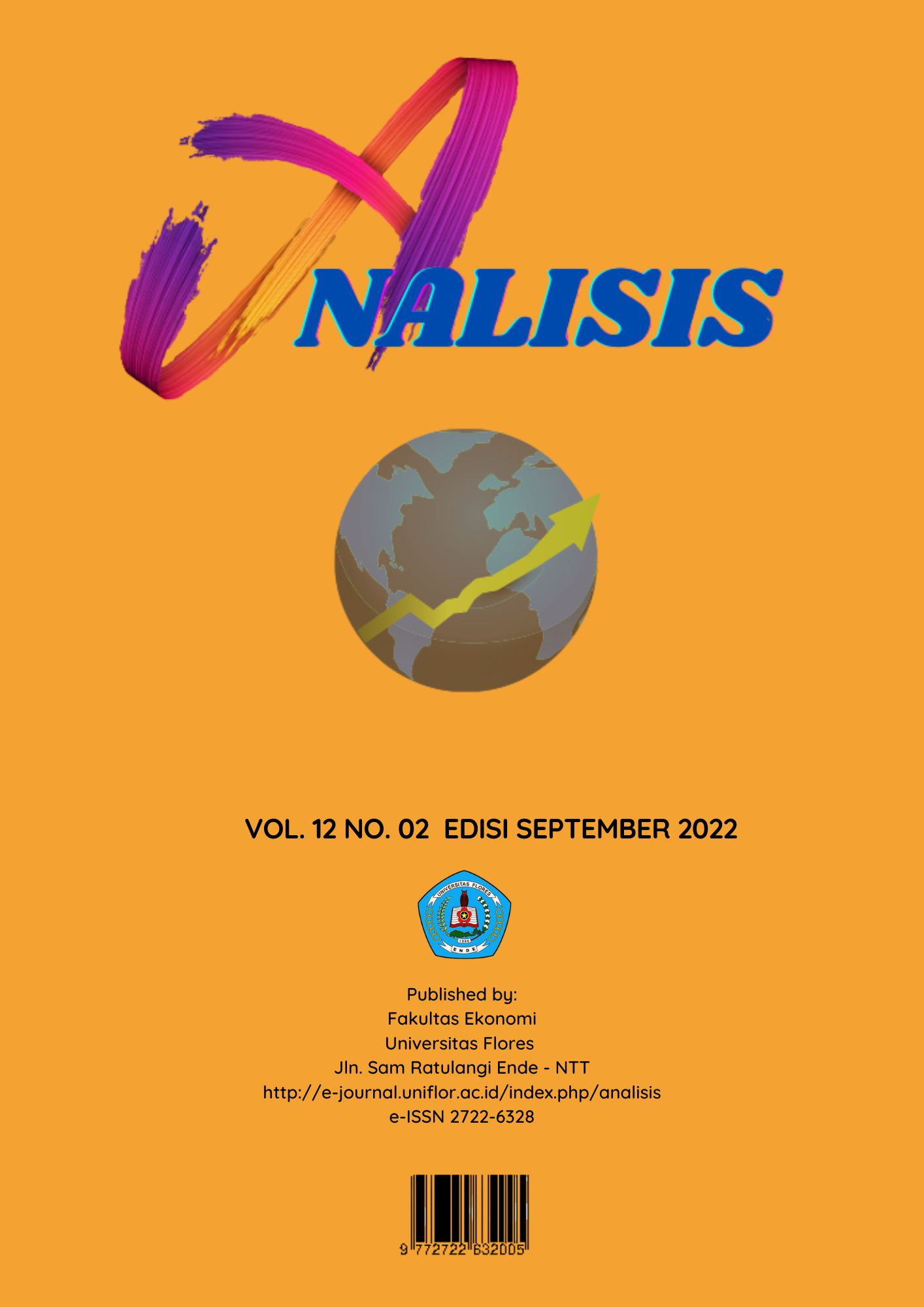KUALITAS PELAYANAN KARTU TANDA PENDUDUK ELEKTRONIK (e-KTP) PADA DINAS KEPENDUDUKAN DAN PENCATATAN SIPIL KABUPATEN ENDE
DOI:
https://doi.org/10.37478/als.v12i2.2078Abstract
Excellent service provided by service officers in the field of population registration, especially e-KTP loading, greatly affects the quality of service perceived by the community. Making e-KTP which take 2-4 weeks, lack of friendliness of employees is providing services, service provided are too bureaucratic, the numbers of officers who handle the e-KTP recording process is not comparable to the people who take care of making e-KTP are problems faced in managing the e-KTP. This study aims to determine the value of the community satisfaction index in getting public services at the office of population and civil registration in ende regency, especialy the process of making e-KTP. The population in this study amounted to 9.811 people with a total sampel of 99 people. Date collection techniques using questionnaires, interviews and documentation. The dat a of analysis technique uses an analysis of the community satisfaction index which is calculated using the weighted average value of each service element. The result of the study show that the community satisfaction index in obtaining e-KTP making services at the ende regency popilation and civil registration office uses 12 elements or assessment indicators coverted to 37,50 and is in the category of poor service quality, while the average value of the community satisfaction indeks studied based on the characteristics of the respondents is 1,39 and is the category of poor service quality
Downloads
Keywords:
public service, service quality, community satisfaction indexReferences
Fandy, Tjiptono dan Greforius, Chandra. (2016). Pemasaran Jasa (Prinsip, Penerapan, dan Penelitian), Yogyakarta:Andi.
Handayani, Ririn. (2020). Metodologi Penelitian Sosial. Yogyakarta: Trussmedia Grafika.
Kasmadi, N. S. S. (2014). Panduan modern penelitian kuantitatif. Bandung: Alfabeta
.
Kotler, P., Keller, K. L., Brady, M., Goodman, M., & Hansen, T. (2019). Marketing management. Pearson UK.
Lovelock, C., & Wirtz, J. (2011). Services Marketing: People, Technology, Strategy(7th ed.). Pearson Education Limited
Pasolong, H. (2010). Teori Administrasi Publik. Bandung: Alfabeta, CV, 2, 147-148.
Priyono. (2016). Metode Penelitian Kuantitatif. Sidoarjo: Zifatama Publishing.
Samudri, A. (2017). Kualitas Pelayanan E-Ktp Di Dinas Kependudukan Dan Catatan Sipil Kota Makassar. (4). Universitas Hasanuddin, Makassar.
Septiani, R. (2017). Analisis Kepuasan Masyarakat Terhadap Pelayanan Pembuatan Kartu Tanda Penduduk Elektrik (E-Ktp) (Studi Kasus Di Kecamatan Bunga Mayang Kabupaten Ogan Komering Ulu Timur).
Siyoto, Sandu dan Sodik, M. Ali. (2015). Dasar Metodologi Penelitian. Yogyakarta: Literasi Media Publishing.
Sugiyono. (2012). Memahami penelitian kualitatif. Bandung: Alfabeta.
Supranto, J. (2011). Pengukuran tingkat kepuasan pelanggan untuk menaikkan pangsa pasar. Jakarta: Rineka Cipta.
Suwanto. (2017). Kualitas Pelayanan Pembuatan Kartu Keluarga Pada Dinas Kependudukan Dan Pencatatan Sipil Kota Tanjungpinang. Universitas Maritim Raja Ali Haji, Tanjungpinang.
https://disdukcapil.endekab.go.id
humasendekab.blogspot.com

Downloads
Published
Versions
- 2022-12-01 (2)
- 2022-09-01 (1)
How to Cite
Issue
Section
License
Copyright Notice
An author who publishes in ANALISIS agrees to the following terms:
- Author retains the copyright and grants the journal the right of first publication of the work simultaneously licensed under the Creative Commons Attribution-ShareAlike 4.0 License that allows others to share the work with an acknowledgement of the work's authorship and initial publication in this journal
- Author is able to enter into separate, additional contractual arrangements for the non-exclusive distribution of the journal's published version of the work (e.g., post it to an institutional repository or publish it in a book) with the acknowledgement of its initial publication in this journal.
- Author is permitted and encouraged to post his/her work online (e.g., in institutional repositories or on their website) prior to and during the submission process, as it can lead to productive exchanges, as well as earlier and greater citation of the published work (See The Effect of Open Access).












